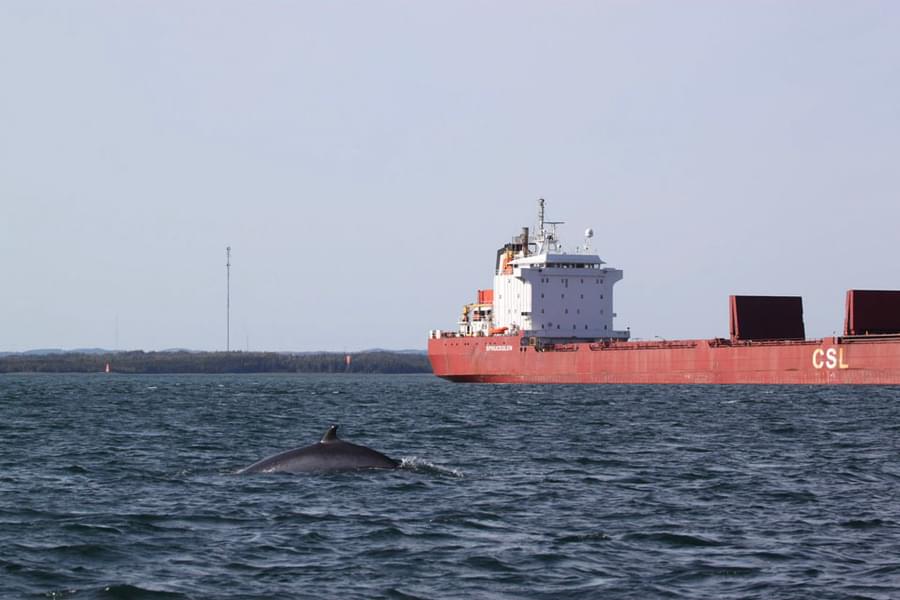The International Chamber of Shipping (ICS) (the global trade association for ship owners and operators) are encouraging the shipping industry to take action to reduce the risk of ship strike to endangered whale species.
Collisions between marine mammals and vessels, known as ship strike, can cause severe injury or death, particularly large whales, whose size and behaviours put them at risk. With an increase in the volume of traffic, growing ship size and increasing speeds, this threat is becoming more and more prevalent.
In areas of the world where there is an overlap of whale densities and ships, measures have been taken to try and prevent collisions.
Some of the significant steps that have been taken include reducing vessel speed and introducing speed limits in areas around the world. For example, in the St Lawrence River, vessel traffic management measures, which largely consist of speed restriction zones, have been implemented to help protect the critically endangered North Atlantic right whales. These animals are the most endangered whales on the planet, with only 300 individuals left. Reducing the likelihood of ship strike events is the difference between extinction and survival for this species.
Some shipping companies have already taken positive steps to reduce ship strikes by avoiding key habitats and hotspots for at-risk whale species. Earlier in the year, we reported that MSC had rerouted their ships to prevent collisions with the endangered Mediterranean population of sperm whales.
We know that the most effective way to reduce ship strikes is to avoid key whale habitats altogether, but where this is not possible, ships are encouraged to slow down and keep a lookout for whales so that avoidance action can be taken,
There has also been guidance produced to educate key stakeholders in 'Particularly Sensitive Sea Areas' and give them the best advice on how to avoid whales.
NGOs have launched initiatives across the world to protect these animals, for example by rerouting ships and/or shipping lanes to avoid areas where the risk of collision is greatest. One example is to move a Traffic Separation Scheme off the southern tip of Sri Lanka into waters further offshore to try and reduce the risk of blue whales being hit by ships in these waters.
The ICS is encouraging the shipping industry to continue to build on these positive steps that have already been taken.
The noise created by ships and the impact this has on marine mammals is also a big concern. Noise caused by ships can disrupt a whale's ability to navigate, feed and communicate. Reducing vessel speed not only reduces the likelihood of collision between ships and whales, but it would also have a positive impact by lowering the level of underwater noise.
ORCA has been working with our partners in the shipping industry to offer bespoke ship strike mitigation training courses to ships all across the globe. Hundreds of bridge officers and watchkeepers have already been trained in whale identification, learning more about the areas of highest risk along their itineraries and, most importantly, the best practice measures to reduce ship strike. We will be continuing this vital work next year, so keep an eye on our news pages for updates.

